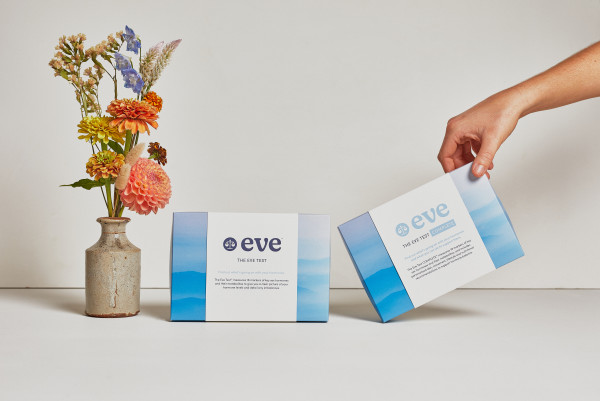Ovulation 101: why it's telling you far more than when you’re ready to have babies
Ovulation is one of the most important markers of female health but is also probably one of the least understood. What is ovulation? How long does it last? What are the signs and symptoms and does it matter if you’re not trying to conceive?
It’s enough to send anyone’s ovaries into a spin, so gather round for your 101.

What is ovulation?
Often overshadowed by its more outspoken colleague, your period, ovulation is actually the main event of the menstrual cycle.
Ovulation is the release of an egg from its follicle, and the key event to unlocking fertility.
However, not simply a matter for those who are motherhood-minded, ovulation is an important milestone in your monthly cycle at any age or stage. In fact, Dr. Jerilynn Prior, Scientific Director at the Centre for Menstrual Cycle and Ovulation Research refers to ovulation as an indicator of women’s whole health.
The process of ovulation starts in the brain. If the brain notes you are experiencing emotional or physical distress, are deprived of food or are unwell, it may not deem things safe enough to become pregnant and will signal to your ovaries to forego the cascade of biological processes that lead to ovulation. In this way, ovulation (or lack thereof) can tell us a lot about someone’s social, emotional or physical environment, and health.

How long does it last?
Ovulation is a blink-and-you’ll-miss-it event. It takes place during one day and the egg will only last for 24 hours! Meaning there is only a 24 hour period when you can conceive.
However, sperm can live for up to 5 days inside you, meaning if you have sex in the days leading up to ovulation there is still a chance for conception.

Why ovulation matters
If you’re looking to conceive, ovulation is the time of the month when it’s time to get busy.
If you’re not trying for a baby right now, ovulation still matters because it’s going to dictate how you feel for the rest of the month until your period arrives.
How so? The process of ovulation releases progesterone into your system. Progesterone is an important hormone for balanced moods and feeling calm, preventing water retention and bloating, clear skin, and quality sleep. Low progesterone levels can be the cause of many of the hormonal woes that plague us month to month.
Tracking whether you ovulate or not will help you unravel any symptoms you experience each month.

Ovulation signs & symptoms
Handily, our bodies give us clues when we may be ovulating. You may not get all of them, all the time, but keep an eye out for:
- Slippery, watery or egg-white textured discharge
- Increased basal body temperature
- Higher sex drive
- Ovulation pains (a mild cramping sensation sometimes felt on one side of the lower abdomen)
- Light spotting
- Breast tenderness

How do you calculate ovulation?
Making things easy for us, period tracking apps like Flo and Clue have ovulation calculators to help you keep tabs on your eggs.
A quick word to the wise: while apps are great for tracking your symptoms and cycle length, take the ovulation predictions with a grain of salt. Apps use algorithms to predict ovulation, while our bodies move to the beat of their own biological drum so you may not ovulate when the app thinks you will.

The best way to calculate ovulation is by watching out for the above symptoms of ovulation and tracking your basal body temperature (BBT).
Checking your BBT each day can give you fascinating insights into the inner workings of your body. Simply get a digital thermometer from a supermarket or pharmacy and check your temp every morning upon waking, recording the result in your tracking app.

After ovulation our BBT increases slightly, indicating that this special event has taken place. If you don’t notice an increase, you may not have ovulated.
Or, if daily checks aren’t your thing, give the Eve Test Complete a try. This at-home hormone test measures 18 different hormonal markers for a comprehensive overview of your complete hormonal picture.
The test can not only indicate whether you are ovulating, but also arms you with insights and nutritionist recommendations to support any hormonal issues you may be experiencing; from PMS and heavy periods, to endometriosis, fertility struggles, hormonal acne and more.

The bottom line
Knowledge is power, and the more knowledge and understanding we have about our bodies; the more we are able to support ourselves to thrive.
Whether you’re trying to conceive or not, ovulation is a health metric it’s time to get curious about.



